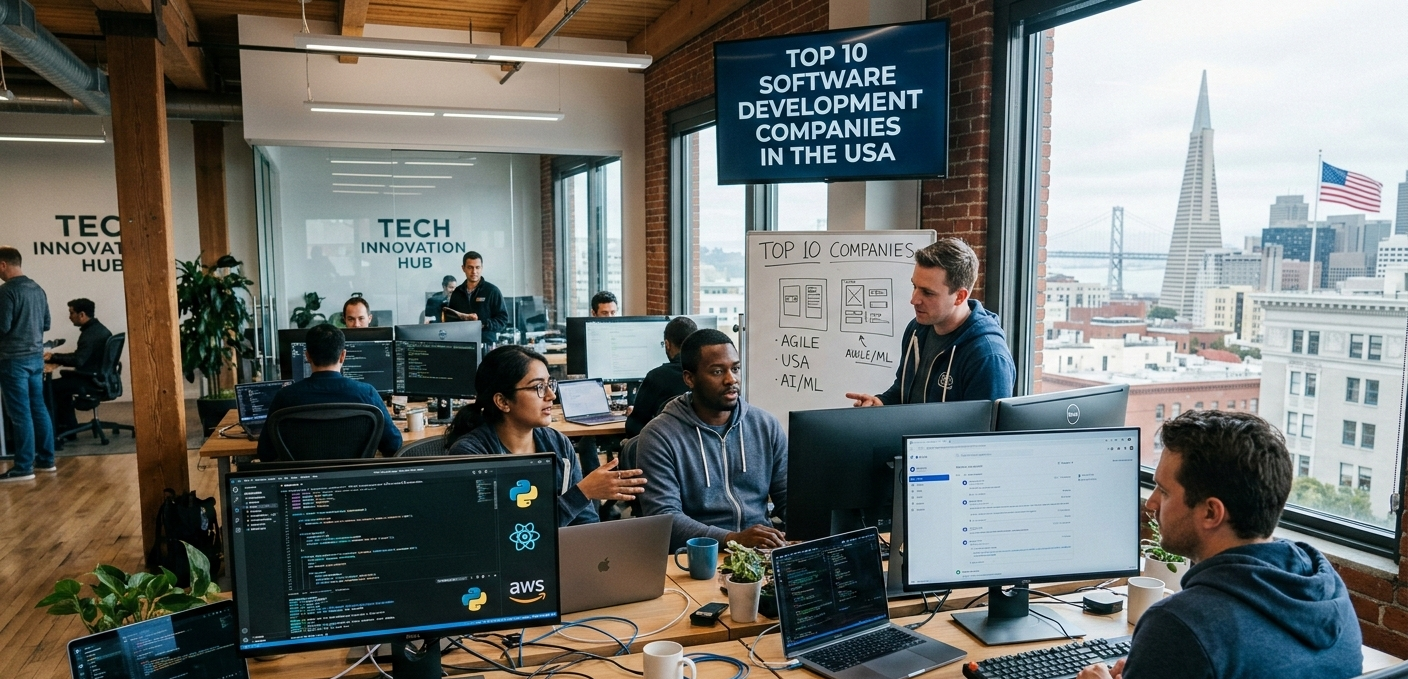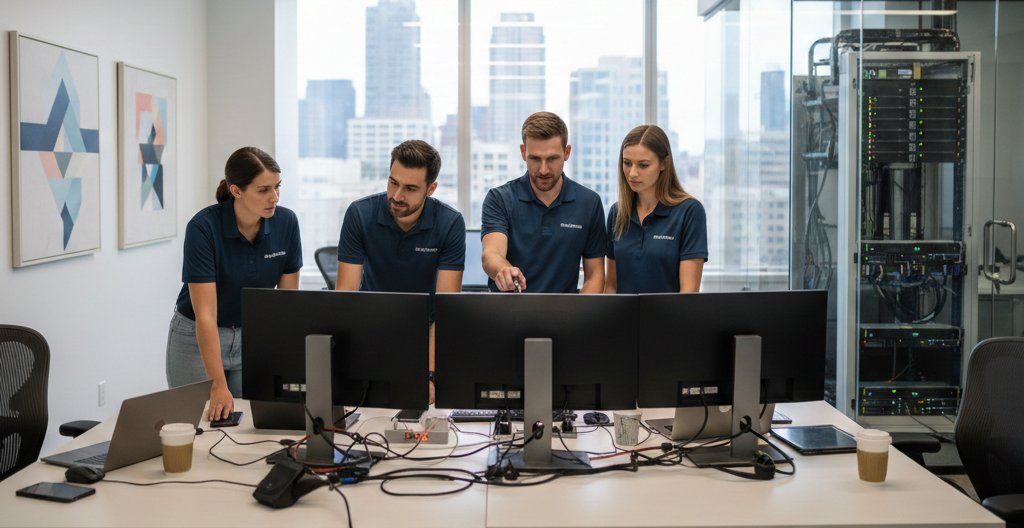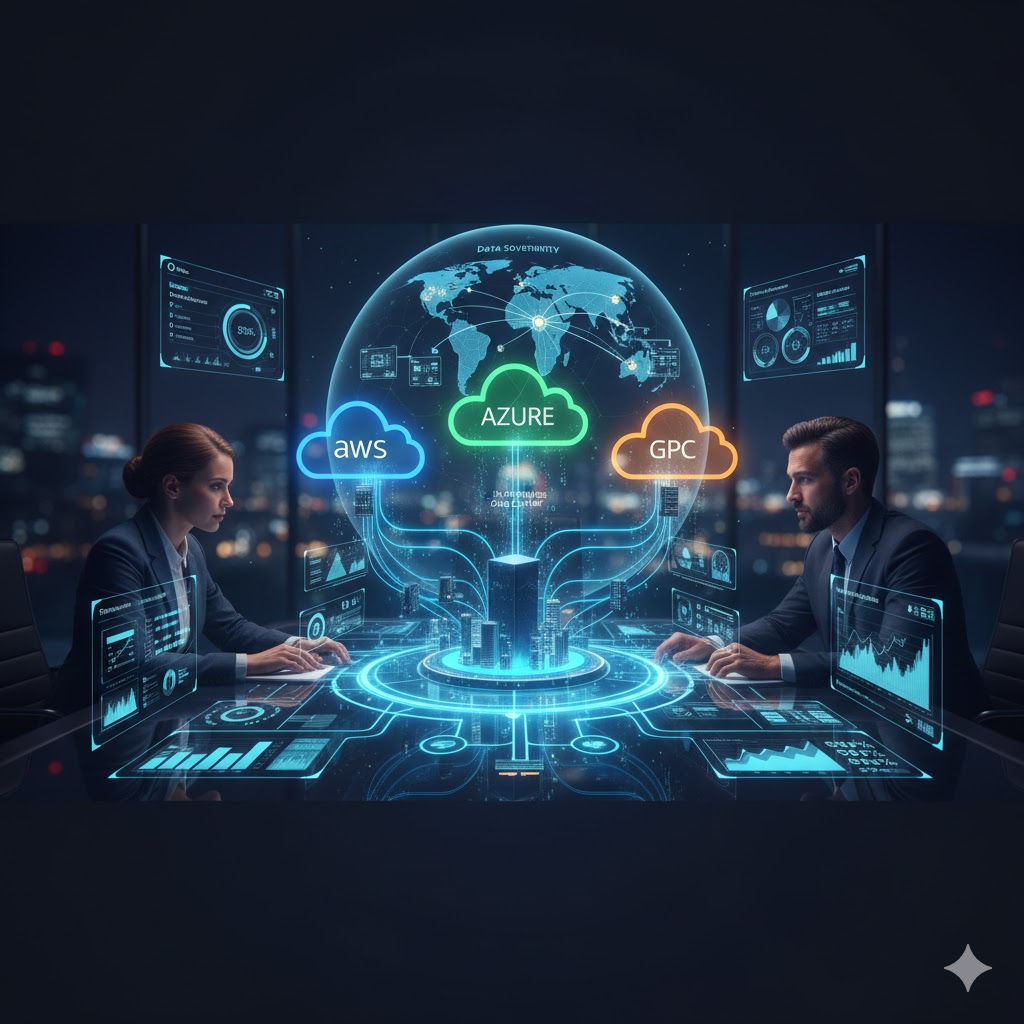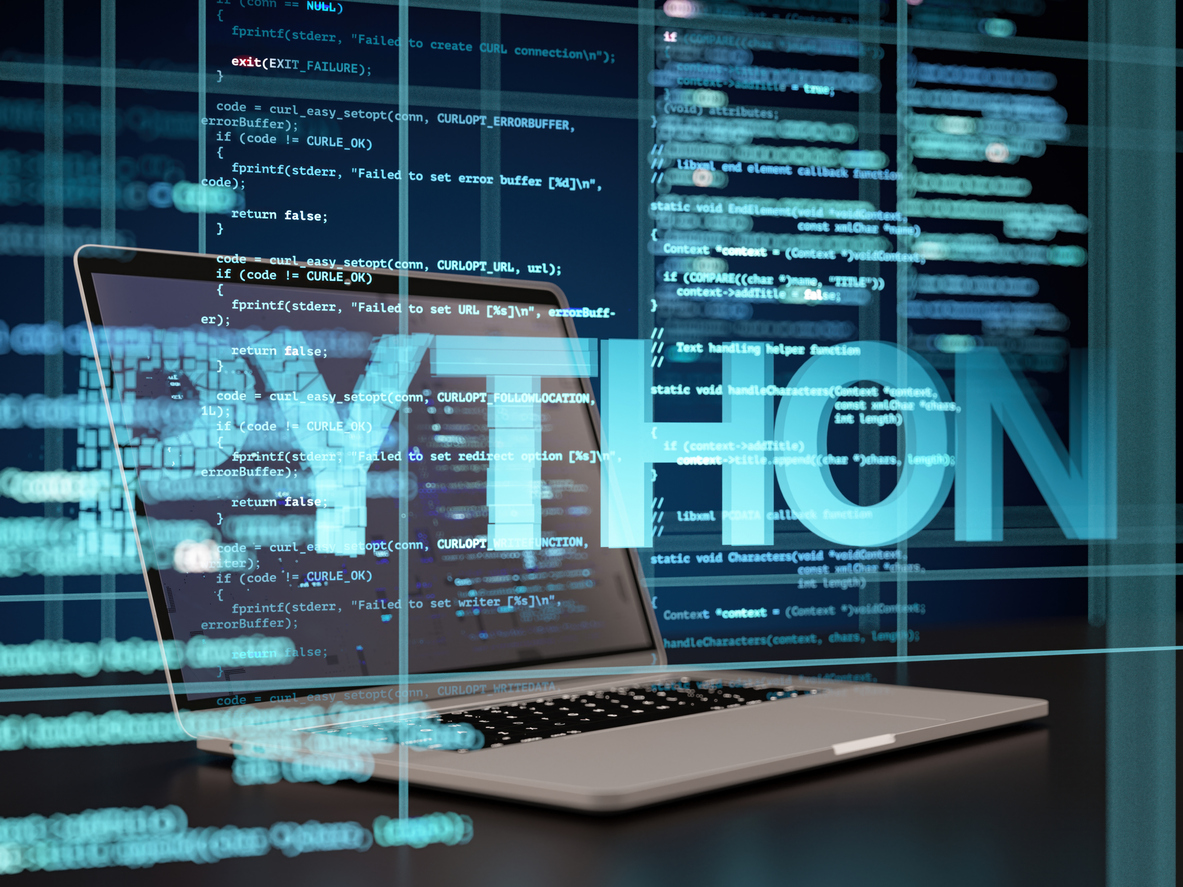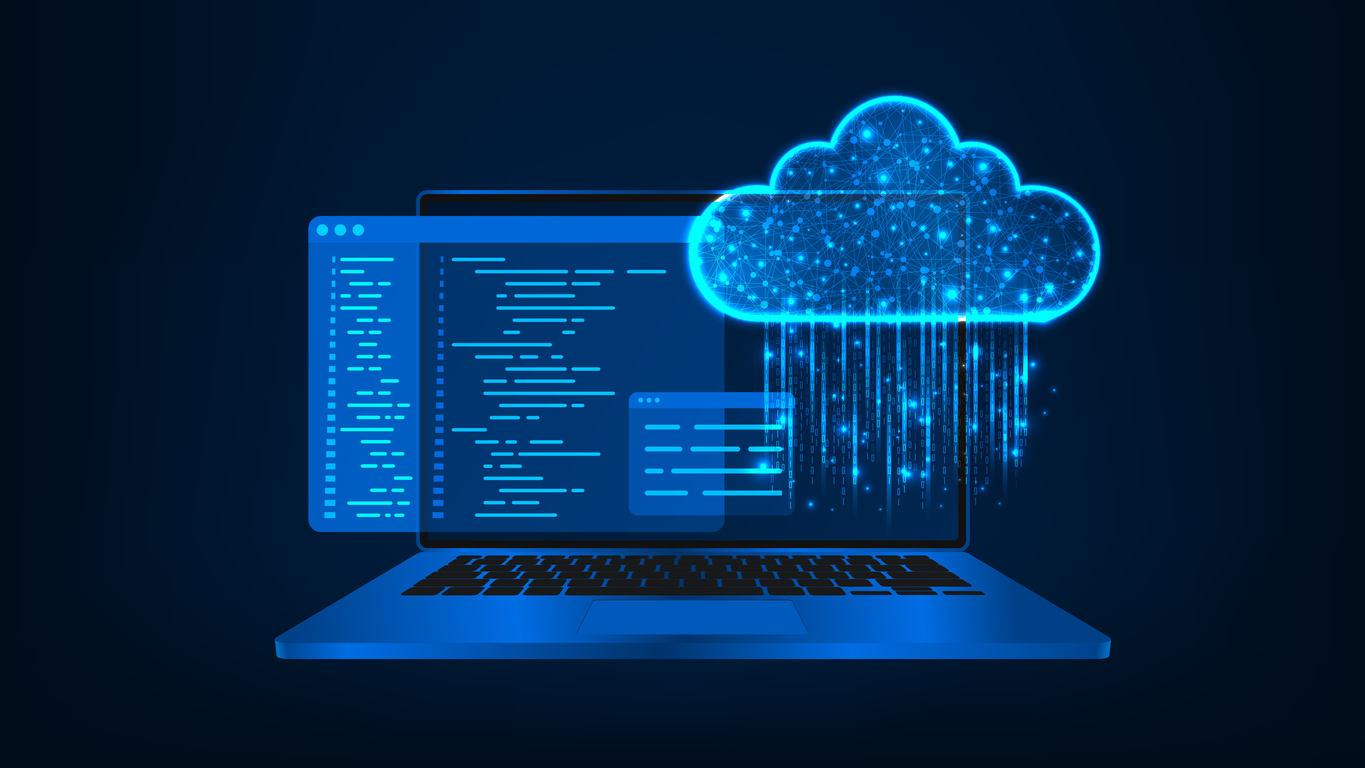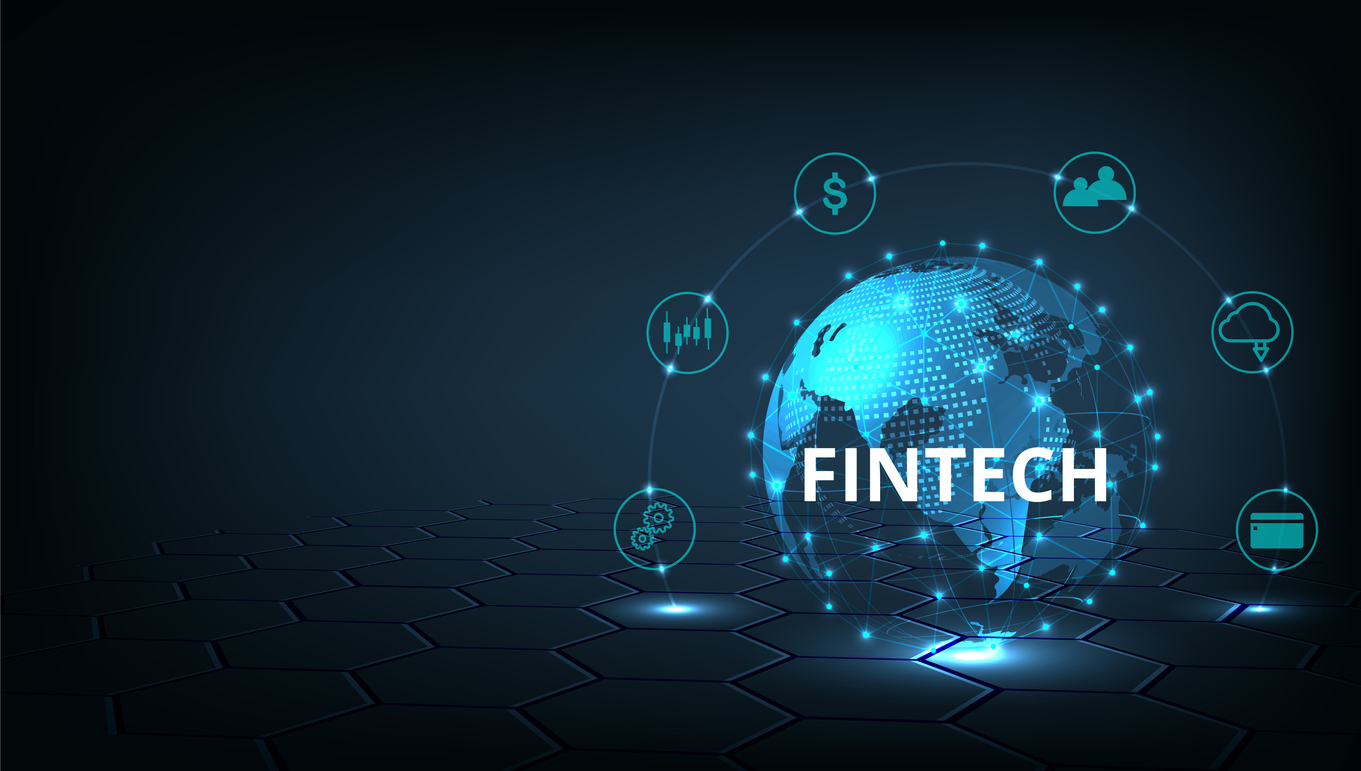Specialized AI development teams bring expertise, infrastructure, and pre-trained models that shorten time-to-market and reduce development risk. Building in-house requires hiring data scientists, ML engineers, and MLOps specialists. The process is costly and can take months. Besides, you need to establish and test processes, which takes long time and much effort.
The best AI development companies in the US and Europe

 16 minutes read
16 minutes read
Content
On the last several years, AI has become a new engine for numerous industries. Over 72% of enterprises have adopted at least one AI use case, while 59% plan to increase AI spending by more than 20% year-over-year. Yet, AI success isn’t guaranteed. Nearly 85% of AI projects fail to reach production, often due to poor data quality, badly business goals, or weak post-deployment governance.
The winners here are the companies that master the entire lifecycle of AI delivery that includes strategy, model design, data engineering, and long-term MLOps. They know that AI isn’t a one-time build, but an ecosystem that requires continuous learning, retraining, and adaptation to the latest regulations. The question is, how to find a good technical partner for this journey? How to separate genuine innovators from software development companies that have adopted AI on a surface level?
This guide is the answer. It’s a ranking of top AI development companies, based on their technical depth, business approach, communication, and operational reliability. Besides, we cover all the vital aspects of choosing and hiring AI software development company, from selection and development processes to the cost breakdown.


Ready to outpace the competition with data-driven intelligence?
Let’s build a custom AI solution that turns your data into your greatest asset.
How did we approach our ranking?
What defines excellence in a field that evolves faster than most industries can adapt? Where lies the difference between average and top AI development companies lies in three elements? In technical depth, business acumen, and reliability. Combined, they build the foundation of ranking methodology. Let’s analyze these elements a little deeper.
Technical depth and future readiness
For our ranking, we evaluated whether the company’s engineers can handle complex data ecosystems, integrate models with the systems business currently uses, and keep pace with generative AI and LLM. Having a strong technical foundation, the company can build the solution that will not just be trendy, but ready to scale, adapt to new challenges and market demands.
Versatility in GenAI / LLM
The companies in our list are rated on their capacity to fine-tune or deploy large language models (GPT, Claude, or Gemini) and, more importantly, to adapt these technologies to private enterprise datasets. Artificial Intelligence development companies leading in this area demonstrate a deep understanding of prompt engineering, contextual embeddings, and responsible model governance.
MLOps maturity
AI doesn’t end at deployment, it learns and grows. We examined how vendors structure their machine learning operations (MLOps) pipelines. Those involve automation, monitoring, retraining, and scalability. Firms with mature MLOps practices can be sustainable in AI systems management, which is a foundation for accuracy and compliance in the future.
Core expertise
Top vendors must demonstrate experience with different AI domains, such as predictive analytics, computer vision, and NLP. In our analysis, we look for balanced teams that include data scientists, software engineers, DevOps specialists, and domain experts, working under a unified methodology. This balance is what separates AI enthusiasts from genuine AI partners.
Business sense
Our second pillar focuses on how vendors align and connect technology with business strategy. We evaluate whether they can use AI as an instrument that reduces costs, improves productivity, and improves customer satisfaction. This can be well seen through the vendor’s industry compliance and case studies they share.
Industry compliance
This criteria is truly vital. AI in healthcare, for example, differs vastly from AI in fintech or manufacturing. We rate vendors according to their familiarity and readiness to stay up-to-date with sector-specific regulations such as HIPAA, GDPR, or ISO 27001. Compliance means trust, especially for companies dealing with sensitive or regulated data.
Case studies
We examine the depth of each vendor’s portfolio. Not the number of projects, but the quality and diversity. Real-world examples of predictive models, recommendation systems, or generative platforms deployed at scale weight more than experimental prototypes.
Reliability and metrics
Our final principle is an evaluation of measurable performance, because reliability isn’t a claim, it’s a track record. We go to verified resources to collect reviews and ratings, learn about certifications and analyze metrics if there are any.
Client ratings
Independent client reviews allows to learn not just what the company delivers, but how it does it. Collaboration approach and communication nuances – it’s all there. Besides, we analyse feedback on responsiveness, project management, and long-term customer satisfaction. Consistent ratings above 4.8/5 is a demonstration of company’s reliability and client trust.
Financial health
Long-lasting AI delivery requires a stable foundation. We consider each firm’s scale, revenue growth, and funding history to measure longevity. Artificial Intelligence development companies with strong financial health are better positioned to support enterprise clients over multi-year engagements that include scaling and post-deployment maintenance.
Certifications
Lastly, we verify professional and ethical standards: ISO, SOC 2 Type II, and compliance with responsible AI frameworks. Certification is a proof that a company values data integrity and client trust.
Green flags and red flags in AI development companies
Every second tech company now claims to build AI that transforms industries and changes future, yet few can back that claim with methodical engineering, governance, or real ROI. The difference often comes down to what you can notice before signing the contract – green flags that invite to cooperation and red flags that scream “Run!”
Green flags
Mandatory discovery phase and/or PoC
A structured discovery phase or PoC is the sign of a reliable and confident AI partner. It allows the vendor to validate data quality, assess technical feasibility, and estimate model performance before large-scale commitment. If the firm insists on this step, it’s a demonstration of its confidence in the process and serious commitment to your growth.
Clear Intellectual Property (IP) transfer and model ownership
Intellectual property in AI includes trained models, data pipelines, and much more. Responsible vendors provide a transparent IP transfer protocol that ensures that you own the full rights to all deliverables. This step is crucial; it prevents potential disputes and safeguards your strategic autonomy.
Responsible AI framework
In 2026, responsible AI is a differentiator. Companies that employ an AI ethics or stick to to a Responsible AI charter are those who think in long-term. They incorporate bias detection, fairness testing, and ethical review into their model lifecycle to mitigate risk and strengthen your organization’s reputation.
Red flags
Delivery without a data quality audit
If a vendor promises you great success before analyzing your data, you better walk away. No algorithm can compensate for incomplete, biased, or unstructured data. For responcible AI firms, thorough data audits before model design are mandatory. To skip this step is means to doom your project.
No dedicated MLOps/DevOps team
Artificial Intelligence development companies without a defined MLOps team often leave clients with sluggish models that quickly break down. Monitoring, retraining, and version control are non-negotiable for keeping model performative. The absence of such infrastructure is a signal of short-term thinking and technical immaturity.
Lack of custom model development cases in portfolio
Beware of portfolios composed from generic chatbot clones and API integrations. While tools like OpenAI or Vertex AI can help deliver faster, true expertise lies in custom model development, dataset curation, and pipeline optimization. Vendors who can’t demonstrate proprietary architecture or costom solutions most likely are resellers, not innovators you’re looking for.
5 steps to building a strong partnership
Step 1. Problems and challenges definition
“We need an AI chatbot” or “We need predictive analytics” are not good for the beginning of your project. Instead, you need to identify your core business issue – what decision or process requires improvement or automation? Only then can you bring your problems to the AI vendor. They translate these challenges into objectives and offer the best solution. Quite often, it differs drastically from what you were thinking it would be.
Step 2. Discovery phase
Once you have your clearly defined goals, the vendor moves to a discovery phase – a research and technical feasibility assessment. It’s where teams analyse your existing data, infrastructure, and workflows to determine whether AI is the right fit. Top-tier AI software development companies bring in data scientists, business analysts, and ML engineers at this step to map potential outcomes, outline risks, and design an implementation roadmap. As a result, you gain a clear understanding of what’s possible, what’s required, and what ROI to expect.
Step 3. PoC development
A well-executed PoC – Proof of Concept – is a controlled, small-scale version of the future system that tests your hypothesis with real data. If it works – all good. If it doesn’t, you’ve learned early, before making significant investments.
Reputable AI software development partners define success metrics for PoCs upfront: accuracy thresholds, performance benchmarks, or user satisfaction rates. They also document the learning process, making sure that the full-scale development takes into account all the insights.
Step 4. Development and implementation
Here, best-in-class vendors implement automation pipelines that handle continuous model training, deployment, and monitoring. They also ensure your infrastructure is scalable, secure, and compliant with industry standards. Collaboration is crucial at this phase. Weekly sprints, milestone reviews, and transparent reporting keep all stakeholders aligned. If you’re working with one of the best companies (say, one from our list) you’ll notice that they behave less like contractors and more like long-term technology partners – truly invested in your goal.
Step 5. Optimization and scaling
This final step marks the end of development and the beginning of growth. With post-launch optimization, companies ensure that AI continues to perform accurately as data and needs evolve. Vendors with mature MLOps frameworks retrain models from time to time, add new data sources, and fine-tune algorithms to improve accuracy over time.
Scalability also comes into play. As your business grows, so does your AI workload. Anticipating this, companies that are developing AI build modular architectures and cloud-native infrastructures that expand seamlessly as the demand grows.

Understanding budgeting
Budgeting for an AI initiative is less about the size of your investment and more about where it’s directed. Two projects with identical goals can dramatically differ in cost, depending on data readiness, regulatory obligations, the complexity of the model itself, and, of course, the timelines. Understanding these variables early helps businesses plan strategically and avoid the sticker shock that often accompanies advanced AI work.
Project complexity as the main differentiator
Low: Basic AI tool or internal chatbot
Projects at this level focus on automation or process support, like internal chatbots, document summarisation tools, or workflow assistants. They normally rely on pre-trained models with limited customisation. Timelines are short, from 4 to 8 weeks, and returns are immediate.
Estimated range: $20,000-$60,000
Medium: Mid-level predictive model or computer vision system
Here we are talking about systems that predict outcomes or classify images. For example, demand forecasting, quality inspection, or early anomaly detection. Costs increase due to data preparation and model training requirements. Development typically spans 3-6 months and often includes MLOps integration for automated retraining and monitoring.
Estimated range: $60,000-$250,000
High: Custom enterprise-level platform
These are end-to-end solutions – multi-model architectures, real-time analytics, or custom LLM fine-tuning for domain-specific tasks. They involve advanced infrastructure, multi-cloud deployment, and long-term optimisation. Projects of this scale often become ongoing partnerships that last for years and evolve with new datasets, user feedback, the state of the market, and regulatory updates.
Estimated range: $250,000-$1,000,000+
Other factors that define costs
Model type
The choice between a simple classification model and a generative AI framework, like GPT or Gemini, significantly affects both development time and cloud expenses. Large models require high computational resources for training and fine-tuning.
Data quality
AI performance depends on the quality and diversity of your dataset. Cleaning, labelling, and preparing data can consume up to 60-70% of total project time. Investing early in structured, well-annotated data dramatically reduces downstream costs.
Regulatory specifics
Industries like healthcare, banking, and insurance face strict compliance standards. Meeting these requirements – encryption, auditing, and data residency – is mandatory and ensures long-term risk protection, but also adds to the bill.
Ongoing MLOps
Continuous monitoring, retraining, and infrastructure updates ensure that models stay accurate as environments change. Businesses have to budget 15-20% of total project costs annually for maintenance and performance optimisation.
The best AI solution companies

Blackthorn Vision
Blackthorn Vision, from a reputable custom software development company, has evolved into a full-cycle software partner renowned for its AI and machine learning capabilities. The company’s AI teams specialise in designing predictive systems, intelligent assistants, and data-driven analytics for industries such as healthcare, fintech, and industrial automation.
Ideal for: Businesses seeking a long-term technology partner capable of uniting deep engineering precision with practical AI implementation. Startups, requiring quick solutions with future scalability in mind.

Relevant Software
Relevant Software is an international software development and IT staff augmentation company that provides end-to-end solutions for businesses ranging from Fortune 500 enterprises to startups. They are primarily known for delivering custom, high-quality software products and supplying senior-level tech talent.
- Established: Relevant Software has been operating for over a decade (since around 2013).
- Team: They are noted for having a high percentage of senior and middle-level specialists (often cited as over 90% senior engineers), emphasizing a focus on experienced talent.
- Offices: While operating globally and with a remote-first culture, they maintain offices in Europe, including locations in Ukraine (Lviv), Poland (Warsaw), and Spain (Valencia), and a presence in the USA.
- Track Record: They report having successfully completed over 200 projects for clients worldwide.

Innowise
Established in 2007, Innowise Group operates across more than 40 countries with a team of 2,500+ professionals. Its AI division delivers projects in automation, computer vision, predictive maintenance, and data analytics. What sets Innowise apart is its ability to combine large-scale engineering capacity with innovation, helping enterprises embed AI into broader initiatives rather than isolated pilots.
Ideal for: Corporations that require an AI partner with extensive manpower and technical breadth.

DataRobot
Boston-based DataRobot has become a global reference in enterprise AI platforms. Its technology automates every step of the AI lifecycle, from data preparation to model deployment and governance. The company’s flagship offering, the AI Platform, allows organisations to operationalise hundreds of models simultaneously with built-in monitoring and compliance.
Ideal for: Enterprises with mature data science teams looking to streamline operations and maintain strong regulatory oversight.

STX Next
STX Next started as a custom software development firm and has gradually expanded into AI-enhanced product development. Their approach combines robust software engineering with applied machine learning, integrating AI modules into products for analytics, recommendation, and automation. The company’s strength lies in making AI accessible for businesses at early or mid-adoption stages.
Ideal for: Organisations looking for dependable software delivery with modular AI integration.

LeewayHertz
LeewayHertz is among the companies developing artificial intelligence for business for a relatively long time. Based in San Francisco, the company designs intelligent systems powered by GPT-based models, Rasa, and Dialogflow CX. Their portfolio includes voice and text agents, autonomous workflows, and multimodal systems that combine AI with IoT and blockchain technologies.
Ideal for: Enterprises exploring next-generation AI transformation projects or custom LLM applications.

Tensorway
Tensorway is a boutique AI company focused exclusively on data science, NLP, and deep learning. Their engineers develop domain-specific models for image recognition, sentiment analysis, and predictive analytics. Unlike larger firms, Tensorway works closely with clients on experimental or high-precision AI systems that require constant iteration and fine-tuning.
Ideal for: Organisations needing a specialised AI team for research-intensive or proof-of-concept projects.

Markovate
Markovate helps enterprises build generative AI agents and workflow automation systems powered by large language models. Their focus areas include document intelligence, conversational automation, and AI integration across verticals like real estate, finance, and manufacturing.
Ideal for: Companies seeking to implement agentic AI and automate data-heavy internal workflows.

DataRoot Labs
DataRoot Labs is an R&D-driven AI firm that combines academic-level expertise with startup agility. The company delivers machine learning and deep learning systems, focusing on computer vision, predictive analytics, and MLOps. Their projects often involve building AI MVPs and scaling them into production systems.
Ideal for: Startups and innovation labs in need for rapid prototyping and experimental AI development.

Anthropic
Founded by former OpenAI researchers, Anthropic focuses on developing safe and reliable large language models. Their research underpins advanced generative systems capable of reasoning, summarisation, and multi-modal interaction. While primarily a research organisation, Anthropic’s collaboration programs provide enterprises with access to cutting-edge AI infrastructure and expertise in model safety.
Ideal for: Large enterprises or institutions pursuing custom LLM partnerships and advanced generative AI strategies.


Transform your workflow with intelligent automation that scales.
Partner with a top-tier AI team to bring your smartest ideas to life.
Bottom line
While impressive, AI is complex and success for businesses willing to implement it highly depends of their tech partnership. Experienced and responsible AI development company will bring you up and forward while some offer nothing more than the illusion of success.
AI developing companies featured in this ranking represent the industry’s most competent, forward-looking AI developers. Those are the firms that are technically savvy and possess a deep understanding of business processes. They don’t just build models, they build ecosystems where data, infrastructure, and human expertise coexist in harmony.
From your side, you start small, prove value, analyze insights, update and scale. The future belongs to organisations that integrate AI strategically, not as a buzzword. If you’re looking for a technical partner with such expertise and mindset, contact us!
FAQ
Why hire a specialized Artificial Intelligence solution providers instead of building an in-house team?
Who keeps the ownership of an AI model?
Ownership terms are defined in the contract. Typically, the client retains full rights to all code, data, and trained models developed under the agreement. Vendors may retain rights only to generic frameworks or proprietary tools used to accelerate development. You should always confirm IP clauses before the project begins.
What pricing models are there for AI development?
Most AI development companies provide three main pricing models: Fixed price for clearly defined projects, Time and materials for evolving scopes, and dedicated teams for long-term engagements. Some also offer outcome-based pricing, aligning compensation with project success.
What technologies do AI development companies use?
Most modern AI systems run on cloud platforms like AWS, Azure, or Google Cloud. They rely on frameworks such as TensorFlow, PyTorch, Scikit-learn, and OpenAI APIs for model training and inference. Tools like MLflow, Kubeflow, and SageMaker automate continuous integration and deployment for MLOps.
How do vendors ensure compliance with privacy laws?
Reputable Artificial Intelligence solution providers embed compliance into every development phase. They anonymise datasets, implement role-based access control, and ensure that all data pipelines meet encryption standards. Many maintain certifications like ISO 27001, SOC 2, and HIPAA compliance for healthcare projects.
What’s the difference between Generative AI and traditional Machine Learning?
Machine Learning identifies and predicts patterns based on data. It powers things like recommendation engines or fraud detection. Generative AI goes further. It creates new content (text, images, audio) using foundational models such as GPT or Claude. While ML optimises existing processes, Generative AI is about the production of new content and decisions.
What is the average time-to-market for a tailored AI solution?
A small proof of concept (PoC) normally takes 4-8 weeks. Full-scale deployment for enterprise-grade systems can range from 4 to 9 months, depending on data volume, model complexity, and regulatory compliance needs.
How do I know that AI will solve my business problem?
AI is most effective when there’s structured data and a clear pattern to learn or predict. If your challenge involves forecasting, classification, optimisation, or natural language understanding, AI will likely be a great solution. This question usually finds the answer during the discovery phase.
Which industries see the highest ROI from AI projects?
Industries with data-heavy and repetitive workflows see the fastest gains. Those are healthcare (diagnostics, clinical data automation), finance (fraud detection, risk scoring), retail (personalisation, demand forecasting), and manufacturing (predictive maintenance, process optimisation).



